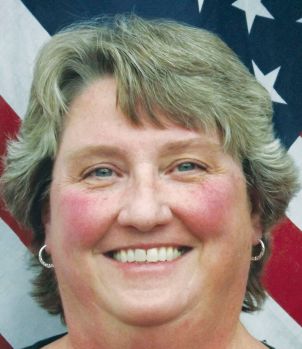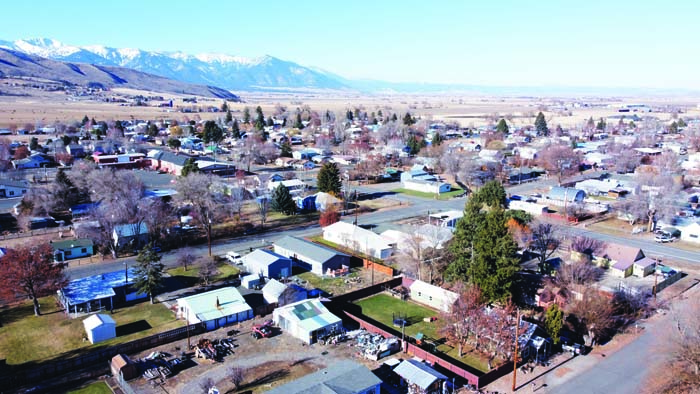Baker City Council approves pay raises for non-union employees; water, sewer rates won’t increase
Published 7:24 am Wednesday, April 9, 2025
The Baker City Council voted 5-0 Tuesday, April 8, to increase salaries for the city’s 13 non-union employees.
Councilors Helen Loennig and Stephen Carr were absent.
The five other councilors approved a resolution that changes the pay structure for non-union employees. The list includes several department heads — police chief Ty Duby, finance director Jeanie Dexter, public works director Joyce Bornstedt, building official Dawn Kitzmiller and fire chief Michael Carlson, who was sworn in at the end of Tuesday’s meeting.
The resolution includes cost-of-living pay raises of 2.7%, a figure based on the average consumer price index for 2024.
Non-union employees will get pay raises each year on July 1, also based on that index.
The finance director, fire chief and police chief received larger increases — 13.8%.
The current base salary for those three jobs is $7,107 per month. That will increase to $8,088, matching the base salary for the public works director, which is currently $7,875 per month and will increase to $8,088 with the cost-of-living boost.
According to a report to councilors from Heidi Quintela, the city’s human resource manager, the fire and police chiefs, and finance director, are all jobs that “require high levels of specific certifications and experience that are equivalent to the responsibility and span of control of the public works director position. Furthermore, these three positions’ salary ranges are lower than salary ranges from comparable cities in Eastern Oregon.”
The resolution also replaces the current five-step salary schedule for non-union employees, which guarantees pay hikes based on workers’ tenure with the city, with a “merit-based” system.
Now, non-union workers will be eligible for raises, in addition to the annual cost-of-living increase, based on their “sustained performance,” determined by an annual review of their work, according to Quintela’s report.
The resolution allows the city manager to give non-union employees merit-based raises of up to 5% each year.
The resolution also authorizes the city manager, again based on performance, to move non-union workers from the base salary to the mid-level or maximum — this three-level schedule replaces the five-step schedule.
Under the previous five-step schedule, the top salary, for an employee who has been with the city for at least 20 years, was $8,865. The top salary for the finance director, fire and police chiefs, and building official was $8,317.
Under the new merit-based system, the finance director, public works director, and police and fire chiefs all have a starting salary of $8,088 per month, a mid-level of $8,596 and a maximum of $9,104.
The building official’s base salary is $7,299, with a mid-level of $7,921 and a maximum of $8,542
One other non-union job — police lieutenant — also has a monthly salary rather than an hourly wage. The lieutenant job starts at $6,991, with a mid-level of $7,612 and a maximum of $8,233.
The seven other non-union jobs all have an hourly wage rather than a monthly salary, and with the same three-level pay range. The base wage ranges from $24.70 per hour for the city recorder to $39.41 for the assistant public works director/project manager.
The resolution councilors approved Tuesday allows the city manager to decide each year, for each non-union employee, which of the three pay levels they are on, and whether they receive a pay raise, in addition to a cost-of-living increase, of up to 5%.
Councilor Doni Bruland said that although she prefers a merit-based pay increase system over the previous schedule that boosted pay based on employees’ tenure, she worries that it could be “disingenuous” for the city to approve pay raises less than a year after imposing a monthly public safety fee of $10 for residents and $20 for businesses. The money from that fee — about $750,000 per year — must be used for the police and fire departments, the most expensive departments in the city’s general fund. Councilors in June 2024 approved the public safety fee based on a projected $800,000 shortfall in the general fund.
“We keep raising and raising,” Bruland said, referring to salary increases.
She said she is concerned about an “unsustainable” increase in the city’s spending.
In September 2024 the council voted unanimously to give city manager Barry Murphy two pay raises, totaling $10,000 per year, boosting his annual salary to $115,000 starting Jan. 1, 2025.
City Manager Barry Murphy said he doesn’t see such an issue now. He noted that non-union employees had in the recent past gone as long as eight years without pay increases.
Murphy told councilors that the city needs to offer “competitive” salaries for department heads. If the city needs to fill a vacancy in one of those jobs, he said the city might need to offer even higher salaries to attract qualified candidates.
The pay increases councilors approved amount to about $12,000 total.
After Tuesday’s meeting, councilor Gratton Miller said that although he understands that some residents might question the council giving pay increases now, he agreed with Murphy that the city, if it fails to offer competitive salaries for department heads, could struggle to find, or retain, qualified employees.
“We have a great staff, and we need to reward them,” Miller said.
Miller said he likes the new salary schedule for non-union employees because their raises are based on performance, not tenure.
Mayor Randy Daugherty agreed.
“I’m in favor of tying (raises) to performance,” Daugherty said.
In other business Tuesday, councilors voted 5-0 to approve the city fee schedule for the fiscal year that starts July 1.
Other than a few increases at the airport, fees will stay the same, including for water and sewer rates.
Daugherty, noting that the city increased water and sewer rates by 4.3% last year in addition to imposing the public safety fee, said he approved of the general freeze in fees.
“The citizens deserve a little break,” he said.
The council also recognized two longtime employees.
Rick Owens, who was not present, has worked for the public works department for 30 years.
Sgt. Rand Weaver, who did attend Tuesday’s meeting, has been with the Baker City Police for 20 years, and has worked in law enforcement since 1991, when he started as a reserve deputy in Wallowa County. He later worked for the Enterprise Police Department before moving to Baker City.
Bornstedt, the public works director, told councilors that Weaver, after learning in February about an increase in water use in the city, made a grid search of the city and within an hour had found the water leak. Without his efforts, Bornstedt the city could temporarily have been without sufficient water.









